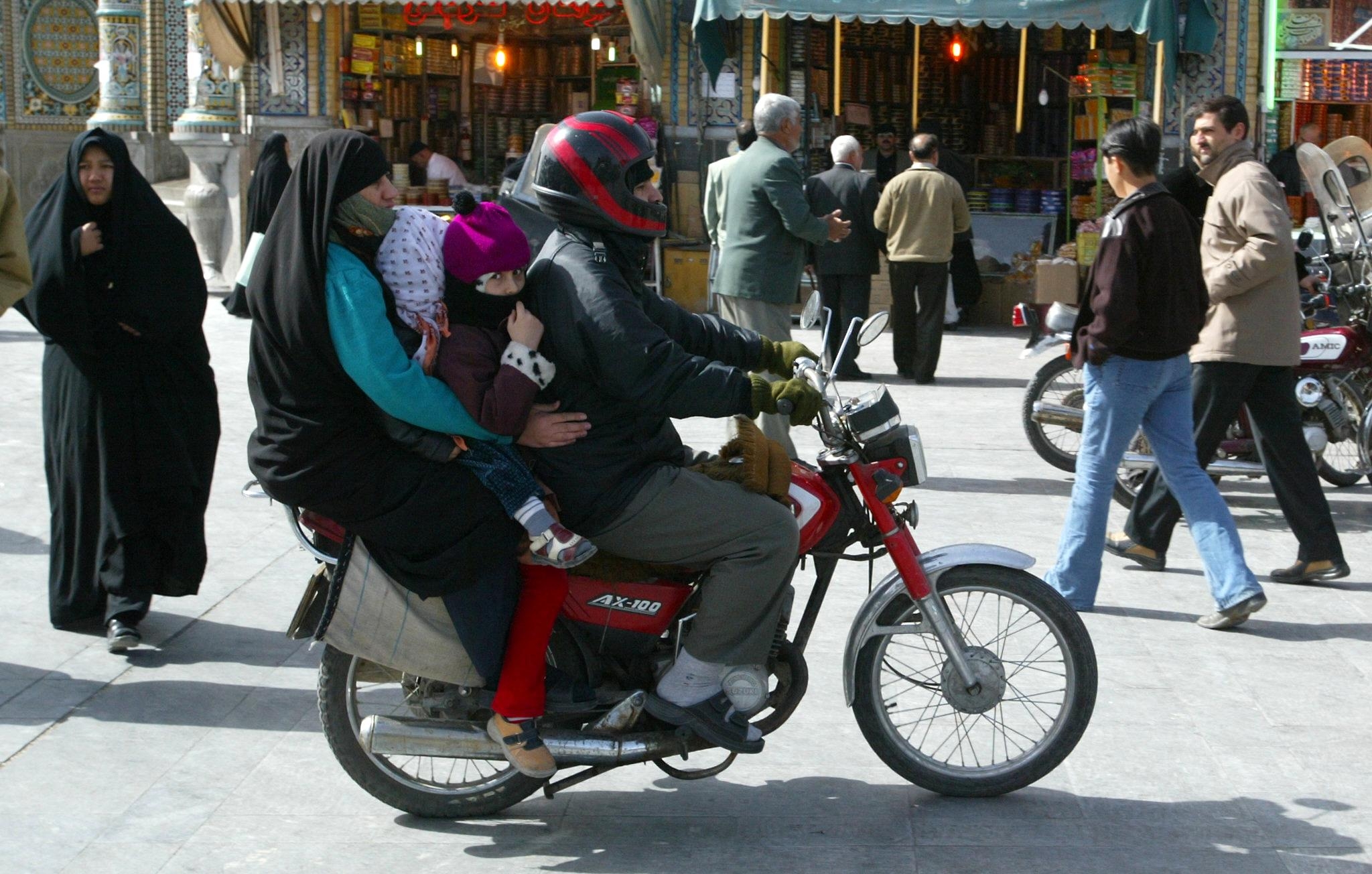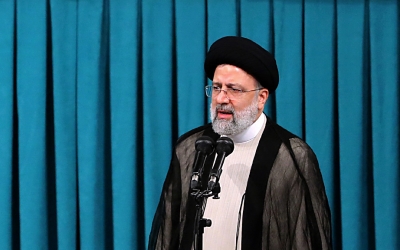Iranian press review: Iranian women call for ban on motorcycle licences to be overturned

Call for police to issue motorcycle licences for women
Iranian women have demanded that police issue motorcycle licences for women, permitting them to ride a motorbike officially, following a statement issued by Tehran's traffic police banning women from riding the vehicles in the Iranian capital.
The Hamshahri daily reported that Iran's traffic police had previously stressed that there was no ban on women riding a motorcycle if they had a licence. However, the police do not permit women to take the test to receive the permit.
The daily quoted an unnamed police source as saying that the law required them "to stop people riding without a licence, and since women do not have a licence, we are obliged to stop them".
According to Hamshahri, the number of women riding motorcycles in big Iranian cities has been rising after the pandemic hit the country, and the price of cars increased sharply.
New MEE newsletter: Jerusalem Dispatch
Sign up to get the latest insights and analysis on Israel-Palestine, alongside Turkey Unpacked and other MEE newsletters
"Women have found different discreet ways to ride their motorcycles on the streets, despite the official ban - they prefer to keep these methods secret so as not to face more restrictions by the police," the daily added.
Iran breaks Covid-19 record again
With 39,019 daily new cases, Iran has once again broken its record for confirmed Covid-19 cases in a single day on Tuesday. This is the highest number of infected persons reported in 24 hours since the pandemic broke out in the country last year.
According to official numbers, this week, Iran's daily death toll has again passed 400, with 411 people dying of the coronavirus on Monday.
In a televised interview, Payam Tabarsi, head of infectious diseases at Tehran's Masih Daneshvari Hospital, suggested that a more accurate estimate of daily deaths in Iran would put the number as high as 800 per day.
Meanwhile, Iran's outgoing health minister Saeed Namaki - in a letter to the country's supreme leader - urged him to step in to contain the pandemic.
"On these days, your serious intervention is necessary to deploy all facilities available to fight against this destructive phenomenon," Namaki wrote in the letter.
"Any delay in making a decision would brand the catastrophe larger with a heavier burden on the country," Namaki added in his letter, suggesting the deployment of the military and armed forces to enforce another two-week national lockdown.
State bank managers fat-cat rewards spark anger
A leaked video showing a meeting of the state-run Tejarat Bank board of directors, deciding over a 5bn Iranian rial (about $118,000) reward for the board members, sparked anger among ordinary Iranians who having been bearing the brunt of an economic crisis.
In the video, which was widely shared on Farsi social media as well as non-official websites, a board member suggests considering a 4bn Iranian rial incentive for the members.
In response to this number, another board member reminds other members that tax will be deducted from that amount and that it would be better to raise the number to 4.5bn. Finally, after a 15-second discussion, members agree to increase the amount to 5bn Iranian rial.
Some Iranian social media users mentioned the 44m rial (around $1,047) average monthly salary of Iranians and condemned the state banks for misusing public funds.
Following days of debate on social media, Farsi mainstream media also picked up the topic and criticised the bank.
Under the headline: "Astronomical reward from ordinary people's pocket", the Aftab daily urged the judicial system to intervene and stop state banks from paying huge salaries and rewards to its managers.
"No matter if the bank's resolution was legal or against the law," the daily wrote. "The strange matter is that this amount of money which is more than the annual income of a majority of Iranians was agreed upon in a very short time."
Iran's economy is worse than war-torn countries, say experts
Economists and experts suggested that President-elect Ebrahim Raisi find a long-term solution for Iran's economic crisis, which has put the sanction-hit country in a financial situation worse than its conflict-riven neighbours.
On 6 August, Raisi will begin his first term in office and analysts believe that his major challenge will be to tackle Iran's economic crisis, which has been worsened by the pandemic and a deadlock in negotiations with the US to remove sanctions on Iran.
According to experts, lack of planning, corruption, being cut out of the international market and high inflation rates are among the causes of the current situation.
In an interview with the ILNA news agency, Iranian economist Meysam Hashemkhani compared Iran's inflation rate with Iraq and Afghanistan, saying that Iranian officials "cannot even dream about a low inflation rate".
Iran's inflation rate in 2020 was 36.5 percent, while Iraq and Afghanistan's inflation rates for the same year were 0.6 and 5.61 percent, respectively.
Kamran Naderi, an Iranian expert in finance, told the Sabzineh daily that the inflation rate would decrease if Iran reached a new agreement with the US for a joint return to the 2015 nuclear deal.
"Income growth due to oil exports would improve the situation for a short while, however for a long-term inflation rate control, Iran's economy needs to go through fundamental reforms," he was quoted as saying.
* Iranian press review is a digest of reports that are not independently verified as accurate by Middle East Eye.
Middle East Eye delivers independent and unrivalled coverage and analysis of the Middle East, North Africa and beyond. To learn more about republishing this content and the associated fees, please fill out this form. More about MEE can be found here.


